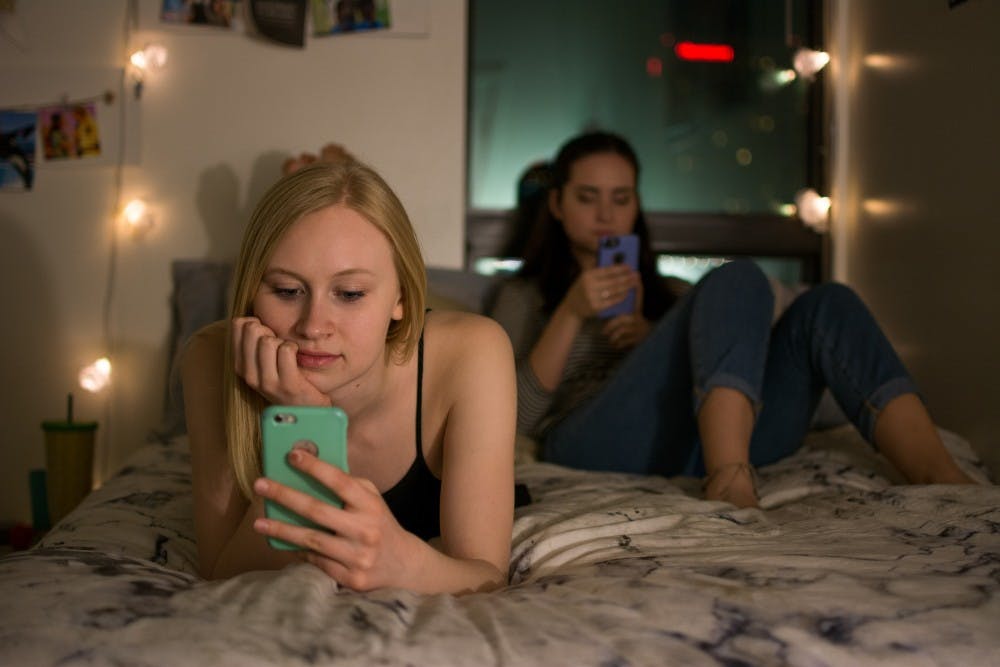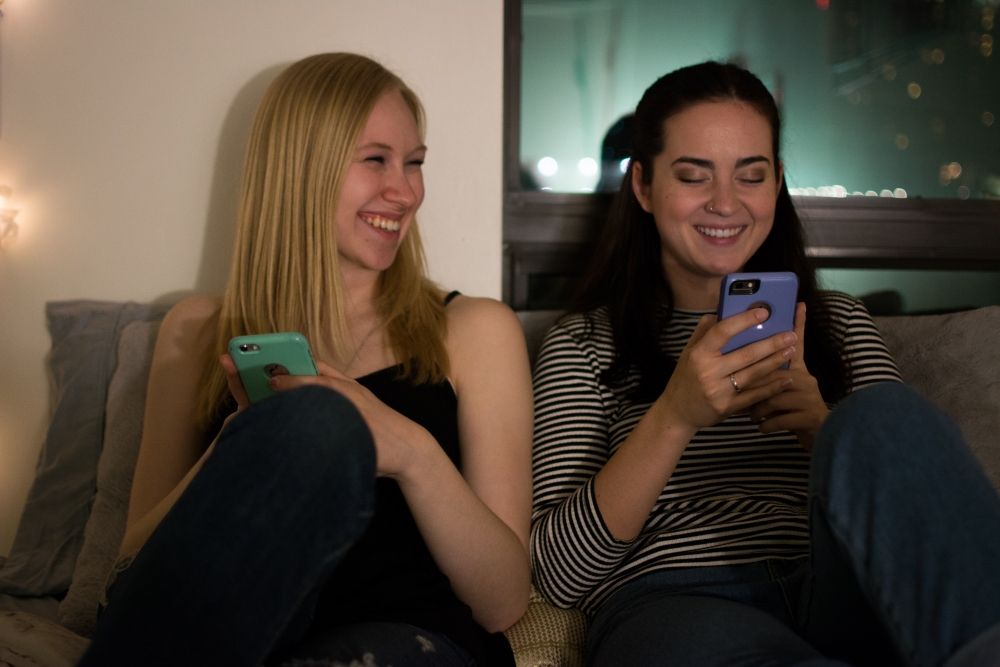Opening Instagram right as I roll over to my bedside table, eyelids barely able to lift their own weight, has become an integral part of my every day. There isn’t a single day since I published my first photo on the hit application on May 19, 2013 where I didn’t look at the application at least twice.
Ever since my first selfie of me and friends, who I hardly talk to anymore, made its way onto my profile, the dynamics of my relationships with my friends have changed dramatically.
The odd sepia filter image raises a lot of questions to me now. It isn’t a particularly special image. The blue tank top that takes up most of the image hangs over scrawny shoulders, blonde wisps of hair fight eagerly to get in front of brown eyes and why was my hand positioned like that on my hip?
The photo was probably one of 25 attempts. And each one of those attempts I wondered which photo would be the one my friends would “like.”
In the end it got 18 likes, ranging from friends to strangers. It even has a few comments, but it’s the number 18 that stands out. eightee or so friends would be a lot for anyone and more than enough for some, but I would always ask myself who made up that number.
Who liked it? Who didn’t? Why didn’t they? Do they like me? All of these are questions I would ask myself again and again as I posted a photo. I soon began to base the quality of my friendships on the content of the number of likes, favorites, comments and more recently reactions my posts got.
This was also how my friendships became judged.
Often I find myself caught in the paradox of social media. My thumb races across my six-and-a-half inch screen like its on a treadmill, scrolling through quickly, stopping at photos or videos of interest. Very rarely does it tap the heart for the photo of the girl in her “trendy” Friday night outfit, or the video of the friend’s dog playing fetch.
Yet, I realized, every post on there is intended, optimized and pleading for my like and comment. Especially ones from friends.It wasn’t until my freshman year walking on collegiate ground that I began to hear the whispers of this judgment. They were quiet, calculating whispers, always perking up when I left the room or the state, talking about how I abandoned them or don’t like them because there wasn’t any proof.
How could they know my friendship meant anything if I didn’t respond within 20 minutes to a text? How could they know I liked them, if I didn’t "like" their every photo or their every status? How were they supposed to know I wasn’t mad at them, if I opened their Snapchat, but didn’t respond? How could they know?
There is a comment that vividly replays over and over in my head whenever I think of my friends who take social media so importantly, as if there are laws chiseled into stone as Holy Writ regarding its rules and guidelines.
“She will like every single tweet of mine,” she says, eyes twinkling like an angel spoke to her directly and blessed her, her thumb sprinting across the screen like it’s winning the race. “Friends like that are so important.”
Friends like that are so important.
My every fiber came to attention at that comment. I’ve hung onto every word as though it were a delicate butterfly that needed to be examined carefully, intently and memorized to perfection.
Fast forward to the present and I can say that now I am not as close with this person. I was not like that "important" friend whose every like and comment gave further confirmation of her commitment and her devotion.
I can say that I have friends who I don’t text every day, skip a photo on Instagram and dare I say, even forget to respond within 20 minutes of receiving their message. To answer the burning question: yes, these friends, they are some of my closest friends.
We love each other because of the time we invest in one another and not because we invest in our profiles. We are friends with one another because of the quality of the conversation and time and because we understood that when we made time for one another, it was purely because we craved the other’s company. That was our proof.
Those are the friends that are so important.
Reach the reporter at Owen.Baldner@asu.edu or follow @baldnerwin on Twitter.
Like State Press Magazine on Facebook and follow @statepressmag on Twitter.





